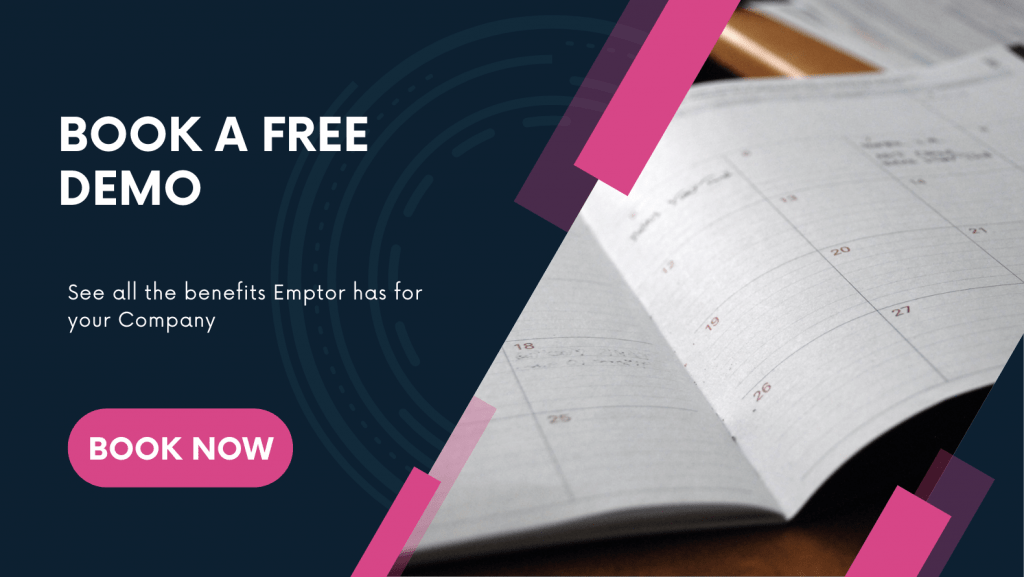Use of Artificial intelligence in human resources department
The world of human resources (HR) is no stranger to technological advancements. Today, we’re witnessing a revolution in HR with the advent of artificial intelligence (AI). But what exactly does it mean to integrate AI in HR, and how can your business do it effectively? In this article, we’ll dive deep into the benefits, implementation steps, and potential challenges of incorporating , ensuring a successful transition.
Understanding Artificial Intelligence
Artificial intelligence (AI) refers to the development of computer systems capable of performing tasks that usually require human intelligence, such as visual perception, speech recognition, decision-making, and natural language understanding. In recent years, AI has emerged as a disruptive force across various industries, revolutionizing the way businesses operate.
Benefits of Implementing in your company
There are numerous advantages to implementing, some of which include:
Improved recruitment processes
AI can transform the way companies hire new employees. With AI-powered tools, HR departments can streamline applicant screening, making it faster and more efficient. Machine learning algorithms can analyze resumes and match them with job requirements, saving recruiters valuable time.
The recruitment process has been transformed with AI-powered tools such as applicant tracking systems, chatbots, and predictive analytics. These technologies enable HR professionals to automate the candidate screening process, match candidates with suitable job positions, and even predict their potential for success within the organization.
ATS and artificial intelligence
ATS (Applicant Tracking System) uses (Artificial Intelligence) in several ways:
- Resume Parsing: ATS uses algorithms to automatically parse and extract information from resumes. This helps recruiters to quickly identify the most relevant candidates for a job.
- Candidate Matching: ATS uses AI to match the skills and experience of a candidate with the job requirements. This helps recruiters to find the best fit for the job.
- Chatbots: ATS uses AI-powered chatbots to interact with candidates and answer their queries. This saves time for recruiters and provides a better candidate experience.
- Screening: ATS uses AI algorithms to screen candidates for potential red flags, such as gaps in employment history, job-hopping, or lack of qualifications. This helps recruiters to filter out unsuitable candidates.
- Predictive Analytics: ATS uses AI to analyze data from past recruitment campaigns and predict the success of future campaigns. This helps recruiters to make data-driven decisions and optimize their recruitment strategy.
Artificial intelligence helps ATS to automate repetitive tasks, improve efficiency, and provide a better candidate experience.
Enhanced employee engagement
AI-driven chatbots and virtual assistants can help keep employees engaged and informed. By answering employee questions and providing real-time feedback, artificial intelligence can create a more connected and transparent work environment.
Also can create workflows and automations to keep in touch and follow up open positions and status update in order to maintain open communications in order to keep potential collaborators in the loop with relevant information.
Onboarding and training
AI-powered platforms can also support the onboarding and training of new employees. These tools can identify skill gaps, create personalized learning paths, and even track progress in real-time, resulting in more effective and efficient training programs.
Performance management and employee engagement
Artificial intelligence -driven tools can enhance performance management by analyzing employee performance data, identifying trends, and providing actionable insights for managers. Additionally, chatbots can gauge employee sentiment, gather feedback, and provide tailored recommendations to improve engagement and satisfaction levels.
HR analytics and data-driven decision making
Artificial intelligence-driven HR analytics tools can process vast amounts of data, uncover patterns, and provide actionable insights for HR professionals. This helps organizations make informed decisions regarding talent acquisition, employee engagement, and workforce management, ultimately improving overall business performance.
Workforce planning and management
AI can aid in workforce planning by analyzing current workforce capabilities and predicting future talent needs. It can also help organizations optimize workforce allocation and scheduling by considering factors like employee skills, availability, and preferences.
Streamlined HR Operations
By automating repetitive tasks, artificial intelligence frees up HR professionals to focus on more strategic initiatives. This can lead to improved efficiency and cost savings.
Steps to implement in the workplace
Set clear goals and objectives
Before diving into AI implementation, determine the specific problems you want to solve and the desired outcomes. This will help guide your decisions throughout the process.
Identify compatible HR processes
Not every HR process will benefit from artificial intelligence integration. Start by identifying the tasks that can be enhanced or automated, such as recruitment, onboarding, or performance management.
Select the right technologies
There are numerous AI tools available, each with different capabilities. Research and choose the technologies that align with your goals and requirements.
Prepare your workforce for AI integration
To ensure a smooth transition, train your employees on how to use the new AI tools and explain the benefits of AI integration. This will help address any fears or misconceptions about AI in the workplace.
Monitor and evaluate AI performance
Continuously track the performance of your AI systems to ensure they meet your expectations. Adjustments may be needed to optimize the technology and achieve your desired outcomes.
Challenges and potential risks
Data privacy and security concerns
As AI relies on large amounts of data, maintaining data privacy and security is critical. Make sure to implement strong data protection measures to prevent breaches or misuse of information.
Bias in AI algorithms
AI algorithms can inadvertently perpetuate bias if not carefully designed. When implementing, be aware of potential biases and work to mitigate them.
Integration with existing HR systems
Integrating AI with your current HR systems can be challenging. It’s important to ensure seamless integration to avoid disruptions and maintain data integrity.
FREQUENTLY ASKED QUESTIONS
Q.Is only beneficial for large companies?
A.No, AI can be beneficial for companies of all sizes. Smaller businesses can also benefit from streamlined HR processes, improved recruitment, and increased employee engagement through AI.
Q.Will AI replace HR professionals?
A.AI is meant to enhance and support HR professionals, not replace them. By automating repetitive tasks, AI allows HR teams to focus on strategic initiatives and human-centric responsibilities.
Q.How do I choose the right AI technology for my HR department?
A.Start by identifying your HR goals and objectives, then research AI tools that align with those goals. Read reviews, talk to other companies using it, and consider running pilot programs to test the tools before making a decision.
Q.How can I ensure my AI systems are free from bias?
A.To minimize bias in AI algorithms, use diverse and representative training data. Regularly evaluate and update your AI systems to ensure they remain unbiased and accurate.
Q.How do I maintain data privacy and security while implementing?
A.Invest in strong data protection measures, such as encryption and access controls. Educate your employees about data privacy best practices and have a plan in place for handling potential data breaches.
Transform your company with Artificial intelligence
The integration of technology has revolutionized the way organizations manage their human resources, streamlining processes, improving decision-making, and enhancing employee experiences.
By embracing and adopting a forward-thinking approach, organizations can unlock new opportunities for growth and innovation in the HR domain.
However, it’s essential to carefully consider whether an agile approach aligns with your organization’s values and goals before embarking on this transformation journey.
At Emptor we encourage you to conduct a proper due diligence in hiring process with automated background check and identity validation on your candidates to ensure that you are working with people you can trust.
Schedule a free demo so you can learn how you can perform automatic background checks in a matter of minutes.





